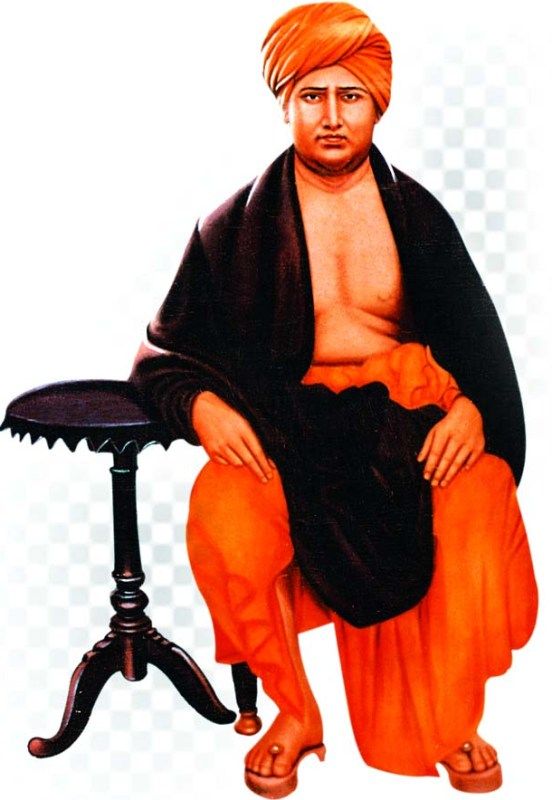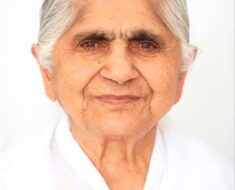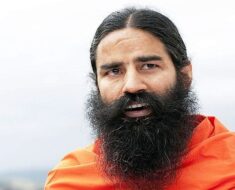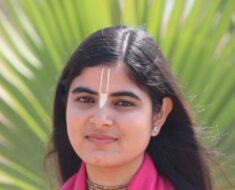Dayananda Saraswati, a pivotal figure in 19th-century India, was a philosopher and social reformer renowned for establishing the Arya Samaj, a significant social reform movement. His influence extended far beyond religious leadership, profoundly impacting Indian society.
Wiki/Biography
Born Mul Shankar Tiwari on February 12, 1824, in Jeevapar Tankara (present-day Morbi District, Gujarat), Dayananda Saraswati was a self-taught scholar. He studied the Vedas and other Sanskrit scriptures under Swami Virajananda’s guidance. Raised in a deeply religious Brahmin family, he was initiated into Brahmanical rituals at a young age. By fourteen, he was a respected figure, proficient in reciting religious verses and engaging in scholarly debates. Observing flaws within Hinduism’s rituals and dogmas, he felt compelled to reform the religion. His teenage years saw him leave home to become a wandering monk.
Family & Caste
Dayananda Saraswati hailed from a prosperous Brahmin family in Gujarat.
Parents & Siblings
His father, Karshanji Lalji Kapadi, held an influential position as a tax collector. His mother was Yashodabai, a homemaker. He reportedly had a younger sister who died of cholera.
Wife & Marital Status
Although engaged in his early teens, he eluded marriage, remaining celibate throughout his life.
A Mouse That Changed His Life
Deeply involved in Brahmanical rituals from a young age, Mul Shankar became a devoted follower of Lord Shiva. However, an incident in 1838 during Shivaratri profoundly altered his perspective. Witnessing a mouse desecrating offerings to Shiva, he questioned the omnipotence of a God unable to protect himself. This event irrevocably changed his views on God and religion.
A Rebellion
The mouse incident fundamentally shifted Mul Shankar’s understanding of Hinduism. He challenged its orthodox practices and questioned his parents’ beliefs, becoming a rebellious figure within his own home. An arranged marriage attempt was made to redirect him, but Mul Shankar’s path was set. In 1846, he left home.
A Wandering Monk
His desire to become a Sanyasi (ascetic) intensified after his younger sister’s death. This, combined with an uncle’s death, solidified his disbelief in meaningless rituals and idolatry. He embarked on a spiritual quest, traversing India as a wandering monk, living in forests and mountains, and visiting pilgrimage sites. At 24, he formally became a Sanyasi after taking Diksha (baptism) from Swami Purnananda Saraswati.
His travels led him to Swami Virjananda in Mathura, a blind sage critical of Hindu orthodoxy. Swami Virjananda encouraged him to study the Vedas and spread their message. Virjananda’s final words to Dayananda were to dispel ignorance surrounding the Vedas and disseminate true Vedic dharma.
Back to the Vedas
Dayananda Saraswati promoted Vedic ideals, particularly Brahmacharya (celibacy), urging a return to Vedic principles. His “back to the Vedas” slogan resonated with many contemporary thinkers and philosophers.
The Emergence of the Arya Samaj
After encounters with various social organizations, including interactions with Ramakrishna Paramahansa in Calcutta, Dayananda founded the Arya Samaj on April 10, 1875, in Bombay. Its motto, “Make the world noble!”, emphasizes equality and justice regardless of caste, class, gender, or nationality. The Arya Samaj’s ten principles center on benefiting humankind.
The Arya Samaj’s influence extends beyond India, with a global presence in countries such as the United States, Canada, and the United Kingdom.
An Advocate of Women’s Rights
A strong advocate for women’s rights, Dayananda opposed the exclusion of women from Vedic studies and championed other social rights denied to them at the time, including widow remarriage. He believed the Vedas were meant for all, regardless of gender.
Religious Career
Dayananda dedicated his life to spreading the Vedic message and combating what he considered pointless rituals and superstitions within Hinduism. His book, Satyarth Prakash, is a significant contribution to this effort.
Guru (Mentor)
He learned from Virajanand Dandeesha, also known as the blind sage of Mathura.
Notable Movements
- Arya Samaj
- Shuddhi Movement
- Back to the Vedas
Notable Publications
- Satyarth Prakash (1875 & 1884)
- Sanskarvidhi (1877 & 1884)
- Yajurved Bhashyam (1878 to 1889)
Influences
Dayananda’s ideology was shaped by various thinkers, including Kanada, Yska, Patanjali, and others. Conversely, he significantly influenced numerous individuals and movements within India.
| Influenced By | Influenced |
|---|---|
| Kanada, Yska, Patanjali, Kashyapa, Kapila, Panini, Akshapada Gautama, Aristotle, Socrates, Ramanuja, Adi Shankara | Pandit Lekh Ram, Madam Cama, Shyamji Krishna Varma, Swami Shraddhanand, Lala Hardayal, Vinayak Damodar Savarkar, Ram Prasad Bismil, Madan Lal Dhingra, Mahatma Hansraj, Mahadev Govind Ranade, Lala Lajpat Rai |
Views on Other Religions
Dayananda’s critiques of Christianity, Islam, Sikhism, Jainism, and Buddhism were often harsh and controversial.
Views on Superstition
Dayananda strongly criticized superstitious practices like sorcery and astrology, advocating for rational thought and education.
Controversies
Dayananda’s radical views and outspoken criticisms generated considerable controversy. His work was considered polemic by some, even drawing criticism from Mahatma Gandhi. His Shuddhi movement, aimed at reconversion, also attracted criticism.
Assassination Attempts
Dayananda faced several alleged assassination attempts before his death in 1883.
Death
Dayananda Saraswati died on October 30, 1883, in Mount Abu. His death is attributed to poisoning, allegedly orchestrated by a court dancer offended by his advice to the Maharaja of Jodhpur.
Facts/Trivia
Dayananda’s legacy includes Maharshi Dayanand University and numerous DAV institutions. He was honored with a postal stamp in 1962 and is still remembered for his significant contributions to Indian society and religious thought.






